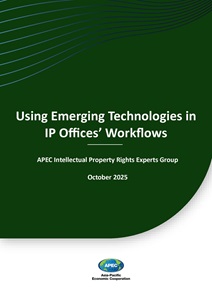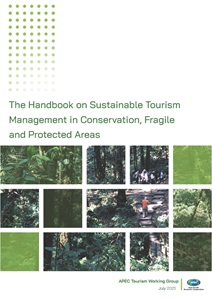
Reports
Using Emerging Technologies in IP Offices’ Workflows
The Asia-Pacific Economic Cooperation (APEC) is a regional economic forum established in 1989 to leverage the growing interdependence of the Asia-Pacific.
The Asia-Pacific Economic Cooperation (APEC) is a regional economic forum established in 1989 to leverage the growing interdependence of the Asia-Pacific.
APEC ensures that goods, services, investment and people move easily across borders. Members facilitate this trade through faster customs procedures at borders; more favorable business climates behind the border; and aligning regulations and standards across the region.
APEC ensures that goods, services, investment and people move easily across borders. Members facilitate this trade through faster customs procedures at borders; more favorable business climates behind the border; and aligning regulations and standards across the region.
APEC works to help all residents of the Asia-Pacific participate in the growing economy.
APEC works to help all residents of the Asia-Pacific participate in the growing economy.
Capacity building projects play an important role in helping translate APEC's goals into reality.
Capacity building projects play an important role in helping translate APEC's goals into reality.

Manuals
•July 2025
Download Report
19MB
Published Under
SOM Steering Committee on Economic and Technical Cooperation (SCE), Tourism Working Group (TWG)
Accessed
641
Pages
172
This handbook aims to provide practical guidelines to help managers and relevant parties achieve sustainable tourism in protected and fragile areas. Drawing from the 2024 APEC workshop discussion in Bangkok, it focuses on four key areas including policy and plan development, visitor management, stakeholder participation, and tourism product development. Eleven best practices from seven APEC economies including Australia; China; Indonesia; Mexico; New Zealand; Thailand; and United States, are included. Putting these management guidelines into practice, we can protect the invaluable natural and cultural heritage of these areas for future generations while providing meaningful and enriching experiences for tourists. It is our collective responsibility to maintain a balance between tourism development and conservation, ensuring that protected and fragile areas continue to thrive and inspire for years to come.

